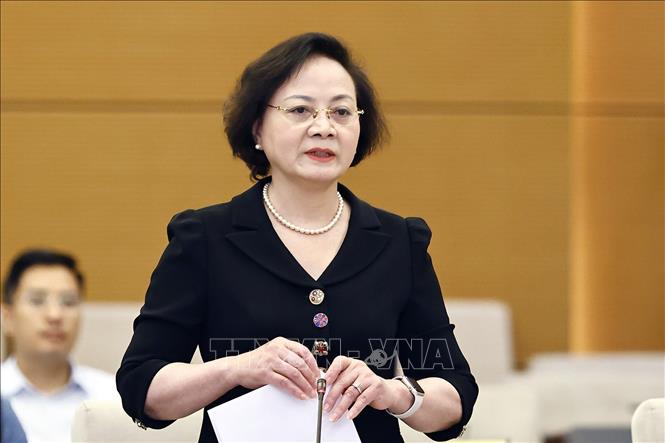
Through the review, the ministries and ministerial-level agencies have basically grasped and fully implemented the assigned tasks in the conclusions of the Politburo , the Secretariat and the resolutions and dispatches of the Government and the Prime Minister. Specifically, 42/69 assigned tasks in the 6 conclusions of the Politburo, the Secretariat and the resolutions of the Government and the Prime Minister have been grasped and implemented by the ministries and ministerial-level agencies (some tasks are regular activities and will continue to be implemented in the coming time).
27/69 tasks assigned in 6 conclusions of the Politburo and Secretariat have been thoroughly grasped by ministries and ministerial-level agencies and are in the process of being implemented (some tasks have been reported to the Politburo and Secretariat and are continuing to be completed), including 10 tasks in the conclusions of the Politburo. Conclusion No. 174-KL/TW (on building the organization and operation of 2-level administrative units to ensure smoothness and efficiency) assigned the Government Party Committee to lead and direct the urgent review, amendment and supplementation of regulations on regimes, policies, salaries, and responsibility allowances for cadres, civil servants and public employees. To carry out this task, the Ministry of Home Affairs has reported to the Politburo and is continuing to complete it and report back in December 2025.
Conclusion No. 174 also assigned the Government Party Committee to lead and direct the review, revision and supplementation of regulations on the number of deputy heads of agencies, organizations and public service units under ministries, ministerial-level agencies, government agencies; specialized agencies and public service units under the People's Committees and People's Councils at the provincial and communal levels in the direction of streamlining, improving quality, and meeting the requirements of the new period. The Ministry of Home Affairs said that this task has been reported to the Politburo and is continuing to be completed before October 15, 2025.
In addition, the Ministry of Home Affairs has advised the Government Party Committee to report to the Politburo on reviewing and evaluating the management and use of government staff after restructuring the apparatus; coordinating with the Central Organization Committee to complete the determination of job positions, as a basis for determining staffing until 2031 of ministries; ministerial-level agencies; government agencies; local authorities; Vietnamese representative agencies abroad; public service units and mass organizations assigned tasks by the Party and State at the Central level. The Ministry of Home Affairs presides over and coordinates with the Ministry of Construction to advise on the issuance of regulations on administrative unit standards, classification of administrative units and classification of urban areas, which have been reported to the Politburo and are continuing to complete and promulgate after the 12th Central Conference.
Implementing Conclusion No. 179-KL/TW on continuing to deploy tasks to perfect the organization and operation of the 2-level local government model, the Ministry of Finance is researching and advising on institutionalizing Resolution No. 201/2025/QH15 of the National Assembly to pilot a number of specific mechanisms and policies for social housing development in the direction of expanding the subjects eligible to buy and rent social housing.
The Ministry of Home Affairs coordinates with localities to review the situation of cadres and civil servants working on ethnic and religious affairs, especially cadres working on state management of beliefs and religions, to ensure the right job position, right capacity and expertise; sufficient quantity and quality, meeting requirements and tasks at the grassroots level.
The Ministry of Education and Training is developing guidelines on job positions, staff structure by professional title and quotas for the number of people working in educational institutions as a basis for localities to implement.
Implementing Conclusion No. 183-KL/TW of the Politburo and the Secretariat on actively implementing the two-level local government model, strongly shifting the grassroots level to proactively controlling and managing the socio-economy, national defense and security, the Ministry of Home Affairs is building a set of tools to evaluate work efficiency, as a measure of the quality of civil servants and public employees. The Ministry of Finance continues to pay attention to allocating financial resources from the central budget to support the digitization of documents and records; investing in facilities, public housing, and essential information technology equipment in newly established communes, wards, and special zones, especially in mountainous and disadvantaged localities.
The Ministry of Agriculture and Environment is also advising on the implementation of a unified land price framework after the merger, as a basis for implementing compensation and site clearance work according to Conclusion 186-KL/TW on the situation and performance results of the political system and local government apparatus at two levels.
However, the Ministry of Home Affairs also stated that, up to now, although ministries and branches have regularly monitored and grasped the situation, promptly issued guiding documents, there are still some areas that are not timely such as: appointment authority in the education sector, financial and accounting mechanisms, regulations on exemption and reduction of land use fees for meritorious people, authority to approve land use plans, instructions on procedures when implementing decentralization, delegation of authority, and determination of authority in some areas of science and technology, agriculture and environment.
The reason is that although the system of institutions, policies and laws has been urgently revised, supplemented and perfected, and basic difficulties and shortcomings have been promptly resolved, there are still some contents that are not consistent and not close to reality. Guidance and coordination work is not specific and tight, and the coordination process between levels and sectors is still in the adjustment stage, so it is not organized in a unified and stable manner.
Source: https://baotintuc.vn/thoi-su/bao-cao-bo-chinh-tri-ve-che-do-chinh-sach-tien-luong-cua-can-bo-cong-chuc-vien-chuc-20251007152928842.htm






![[Photo] Prime Minister Pham Minh Chinh chairs the 16th meeting of the National Steering Committee on combating illegal fishing.](https://vphoto.vietnam.vn/thumb/1200x675/vietnam/resource/IMAGE/2025/10/07/1759848378556_dsc-9253-jpg.webp)



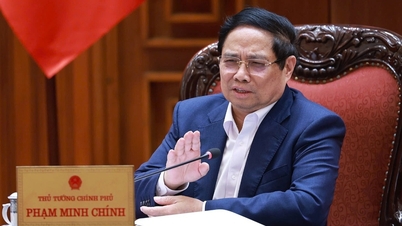

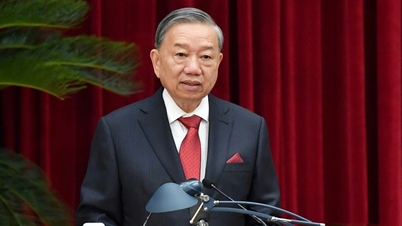




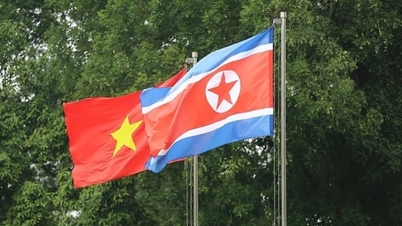













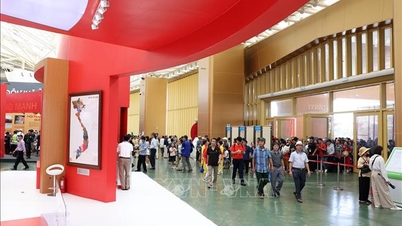


![[Photo] Super harvest moon shines brightly on Mid-Autumn Festival night around the world](https://vphoto.vietnam.vn/thumb/1200x675/vietnam/resource/IMAGE/2025/10/07/1759816565798_1759814567021-jpg.webp)
























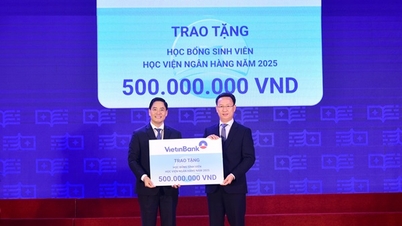






















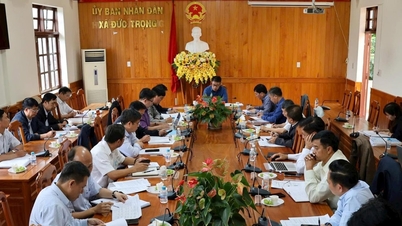



















Comment (0)